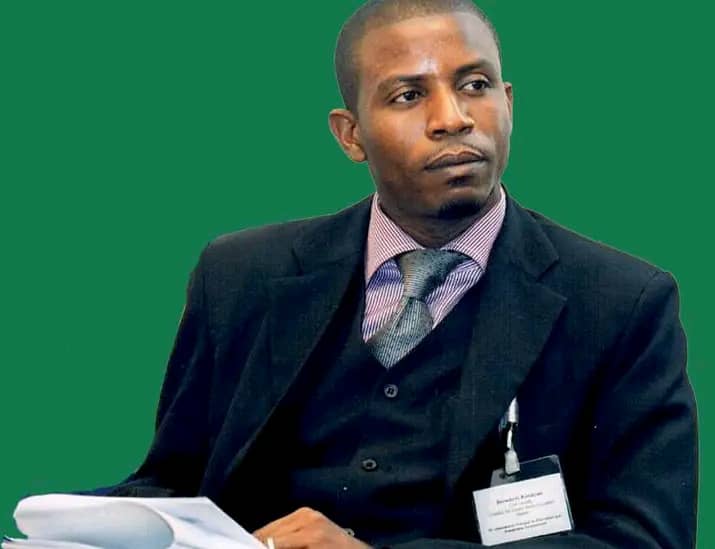
The National Advocacy Platform (NAP) firmly condemns the troubling events that marred the November 13th 2024 demonstrations in Lilongwe. Despite a postponement directive from the Lilongwe District Commissioner, which followed consultations with key stakeholders, including opposition representatives, the demonstrations erupted in confrontation, resulting in injuries and law enforcement’s use of tear gas against citizens exercising their constitutionally protected rights to peaceful assembly and expression. This descent into violence, unabated by law enforcement and marked by counter-protest vigilantes, reveals a grave dereliction of duty by authorities and a fundamental breach of the democratic principles enshrined in our Constitution.
2.0. Observations and Concerns
NAP is deeply alarmed by the blatant disregard for citizens’ fundamental right to freely and safely express their views. The violent scenes witnessed on 13th November 2024, resulting from inadequate preventive measures and unchecked interference, not only jeopardize public order but also establish a disturbing precedent for civic engagement in Malawi. For a democracy to thrive, all duty bearers must commit to facilitating peaceful protest while actively preventing violence. Failure to uphold these principles risks eroding democratic norms, undermining trust in state institutions, and destabilizing the very foundation of our society.
1) Condemnation of Violence and Call for Peaceful Expression: We unequivocally condemn the acts
of violence reported during the demonstrations, including roadblocks allegedly set up by the “Azitho Group” to prevent protesters from assembling, along with reported attacks by individuals who are believed to be from the Msundwe community. Such aggression infringes on the rights of all citizens involved and creates a hostile environment where voices are stifled by fear. Both protesters and counter protesters must exercise mutual respect, and we call upon all parties to refrain from any actions that could escalate tensions further. The passivity of law enforcement in managing the actions of counterprotesters contributed to the escalation, underscoring the need for a proactive and fair police response.
2) Protection of Constitutional Rights to Freedom of Assembly and Expression:
Malawi’s commitment to fundamental human rights is clear, as the country is a signatory to the Universal Declaration on Human Rights (UDHR), and our Constitution enshrines the right to freedom of assembly, association, and expression under sections 32, 35, and 38 respectively. The provisions uphold citizens’ rights to peaceful assembly and expression without unjust interference. The Police Act further mandates law enforcement to protect such gatherings. Attempts to prevent demonstrations without valid reasons violate these rights and threaten the future of democratic expression in Malawi..
3) Impartiality and Duty of Law Enforcement:
Under Section 96(1) of the Police Act, the Malawi Police Service has an obligation to impartially safeguard the rights of citizens to assemble. Yesterday’s use of tear gas against protesters, in contrast to the inaction toward counter-protesters, calls into question whether law enforcement acted independently and proportionately, as required by the Constitution. Law enforcement must commit to providing unbiased security for all citizens, upholding constitutional rights without discrimination.
4) Responsibility of Protesters to Respect Others’ Rights:
While freedom of assembly and expression are foundational rights, NAP reminds all demonstrators of their duty to respect the rights of others. Section 15 of the Constitution requires every individual in Malawi to uphold these rights and respect differing views. We urge all citizens to exercise their freedoms in a manner that respects opposing perspectives and avoids obstructing others.
3.0. Call to Action
1) Call for Dialogue and Constructive Engagement: In light of the events of November 13th, NAP calls on duty bearers and opposition representatives to come together for meaningful dialogue. Addressing the underlying grievances that fueled these protests requires a collaborative effort. NAP reaffirms its commitment to platforms such as the National Elections Consultative Forum (NECOF), which offers valuable spaces for peaceful and productive discussions. We believe that resolving conflicts through dialogue and mutual understanding will uphold democratic principles and also promote an environment of inclusivity and reduce public dissent, ultimately strengthening Malawi’s political landscape.
2) Collective Pursuit for Peace and Unity: Achieving lasting peace and unity demands selflessness and a shared commitment to responsible citizenship. We cannot afford to overlook the recent disturbing events, as doing so only lays the groundwork for further conflict—something NAP firmly opposes. We each must foster and promote a culture of civility, respect, and accountability, recognizing our collective responsibility to future generations. In this spirit, NAP, alongside its partners, will facilitate a multistakeholder Electoral Integrity Forum. This forum will not only champion the principles of
universal suffrage but also establish a systematic approach to monitoring and addressing electoral violence, ensuring that our democracy remains resilient and inclusive for all.
Conclusion
The National Advocacy Platform calls upon the District Commissioner, police, and all duty bearers to protect the constitutional rights of Malawians without bias. Attempts to undermine these rights compromise the foundations of our democracy and signal a troubling lack of accountability. NAP remains dedicated to defending the rights of citizens to voice their concerns free from fear of violence or suppression.
Benedicto Kondowe
Baxton Nkhoma
NAP CHAIRPERSON
NAP NATION


